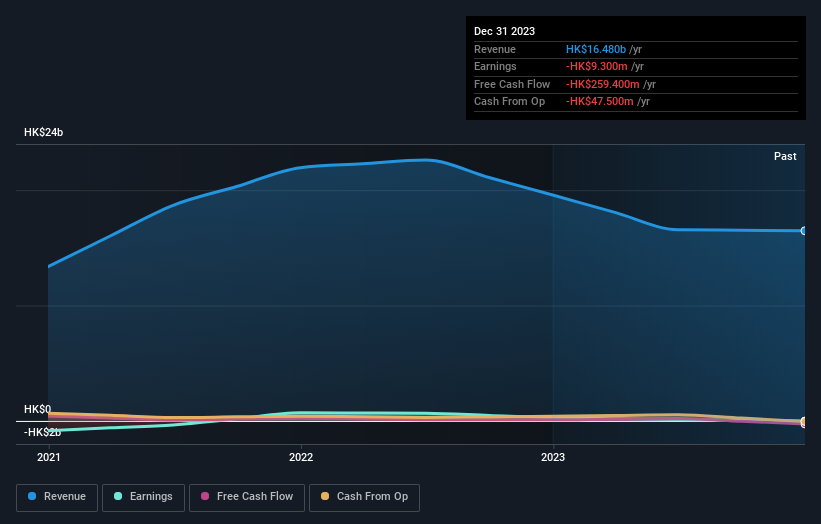
Key Insights
- Significant control over Chiho Environmental Group by private equity firms implies that the general public has more power to influence management and governance-related decisions
- 61% of the company is held by a single shareholder (USUM Investment Group Co., Ltd.)
- Using data from company's past performance alongside ownership research, one can better assess the future performance of a company
A look at the shareholders of Chiho Environmental Group Limited (HKG:976) can tell us which group is most powerful. We can see that private equity firms own the lion's share in the company with 61% ownership. In other words, the group stands to gain the most (or lose the most) from their investment into the company.
And last week, private equity firms endured the biggest losses as the stock fell by 14%.
In the chart below, we zoom in on the different ownership groups of Chiho Environmental Group.
Check out our latest analysis for Chiho Environmental Group

What Does The Lack Of Institutional Ownership Tell Us About Chiho Environmental Group?
We don't tend to see institutional investors holding stock of companies that are very risky, thinly traded, or very small. Though we do sometimes see large companies without institutions on the register, it's not particularly common.
There could be various reasons why no institutions own shares in a company. Typically, small, newly listed companies don't attract much attention from fund managers, because it would not be possible for large fund managers to build a meaningful position in the company. Alternatively, there might be something about the company that has kept institutional investors away. Chiho Environmental Group might not have the sort of past performance institutions are looking for, or perhaps they simply have not studied the business closely.

Chiho Environmental Group is not owned by hedge funds. USUM Investment Group Co., Ltd. is currently the company's largest shareholder with 61% of shares outstanding. This essentially means that they have extensive influence, if not outright control, over the future of the corporation. With 8.9% and 0.2% of the shares outstanding respectively, Mingjie Zhang and Amiral Gestion are the second and third largest shareholders.
While it makes sense to study institutional ownership data for a company, it also makes sense to study analyst sentiments to know which way the wind is blowing. We're not picking up on any analyst coverage of the stock at the moment, so the company is unlikely to be widely held.
Insider Ownership Of Chiho Environmental Group
While the precise definition of an insider can be subjective, almost everyone considers board members to be insiders. Company management run the business, but the CEO will answer to the board, even if he or she is a member of it.
I generally consider insider ownership to be a good thing. However, on some occasions it makes it more difficult for other shareholders to hold the board accountable for decisions.
Our most recent data indicates that insiders own some shares in Chiho Environmental Group Limited. As individuals, the insiders collectively own HK$70m worth of the HK$787m company. This shows at least some alignment, but we usually like to see larger insider holdings. You can click here to see if those insiders have been buying or selling.
General Public Ownership
The general public, who are usually individual investors, hold a 30% stake in Chiho Environmental Group. While this group can't necessarily call the shots, it can certainly have a real influence on how the company is run.
Private Equity Ownership
With a stake of 61%, private equity firms could influence the Chiho Environmental Group board. Some might like this, because private equity are sometimes activists who hold management accountable. But other times, private equity is selling out, having taking the company public.
Next Steps:
I find it very interesting to look at who exactly owns a company. But to truly gain insight, we need to consider other information, too. Case in point: We've spotted 1 warning sign for Chiho Environmental Group you should be aware of.
If you would prefer check out another company -- one with potentially superior financials -- then do not miss this free list of interesting companies, backed by strong financial data.
NB: Figures in this article are calculated using data from the last twelve months, which refer to the 12-month period ending on the last date of the month the financial statement is dated. This may not be consistent with full year annual report figures.
Have feedback on this article? Concerned about the content? Get in touch with us directly. Alternatively, email editorial-team (at) simplywallst.com.
This article by Simply Wall St is general in nature. We provide commentary based on historical data and analyst forecasts only using an unbiased methodology and our articles are not intended to be financial advice. It does not constitute a recommendation to buy or sell any stock, and does not take account of your objectives, or your financial situation. We aim to bring you long-term focused analysis driven by fundamental data. Note that our analysis may not factor in the latest price-sensitive company announcements or qualitative material. Simply Wall St has no position in any stocks mentioned.